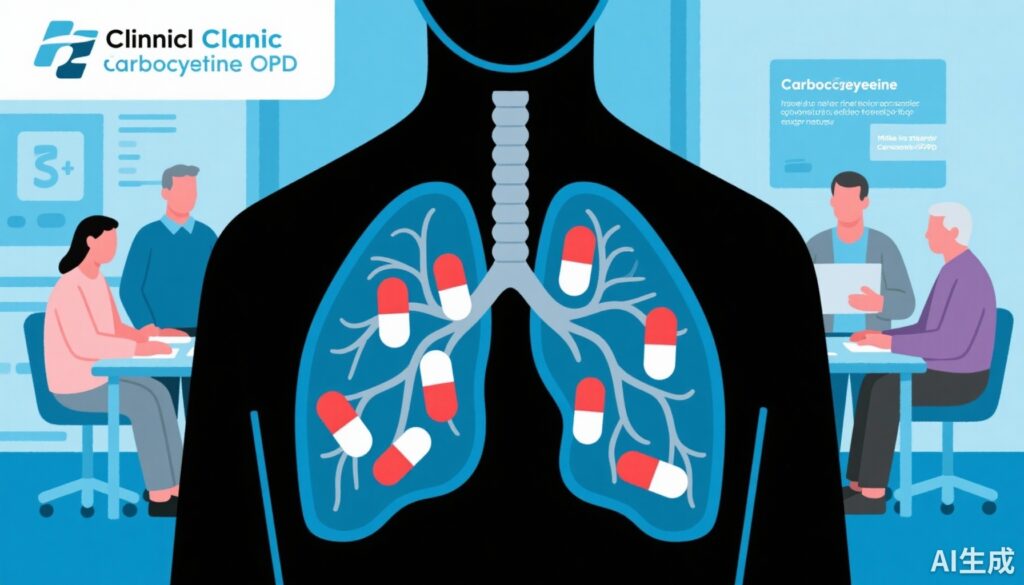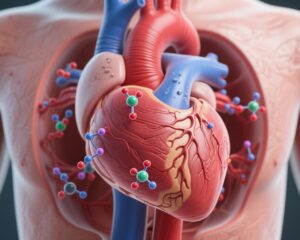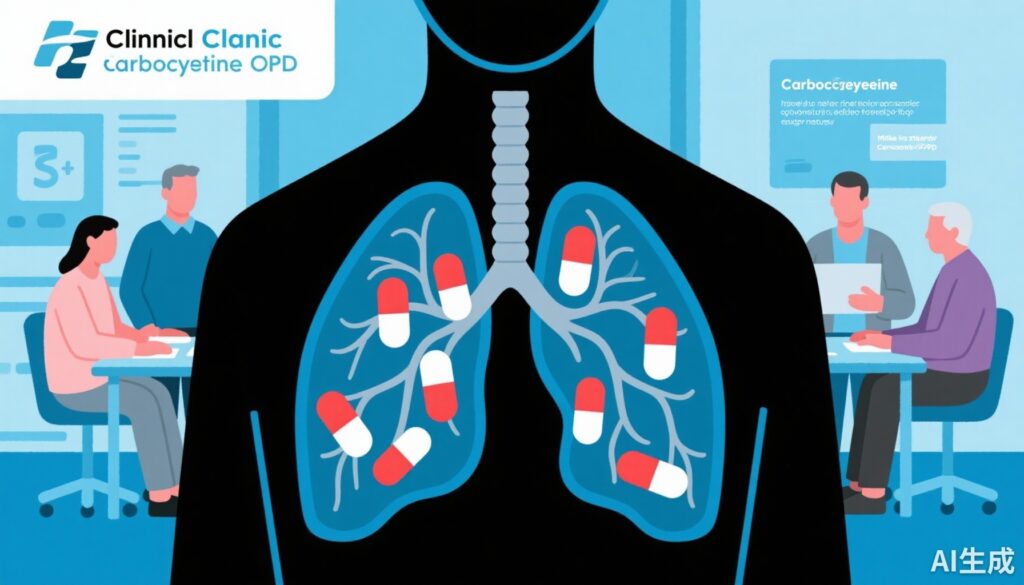Highlight
- Carbocysteine’s efficacy in reducing exacerbations in severe COPD is established, but its benefit in mild-to-moderate disease remains uncertain.
- This large, phase 4, double-blind, placebo-controlled multicenter trial evaluated carbocysteine in 539 mild-to-moderate COPD patients over 12 months.
- No statistically significant reduction in the annual rate of total COPD exacerbations or improvement in FEV1 was observed with carbocysteine compared to placebo.
- Recruitment challenges due to the COVID-19 pandemic limited evaluation of lung function differences; baseline imbalances may have influenced results.
Study Background and Disease Burden
Chronic obstructive pulmonary disease (COPD) is a progressive respiratory disorder characterized by airflow limitation and recurrent exacerbations. These exacerbations accelerate lung function decline and worsen morbidity and mortality. Mucolytic agents like carbocysteine have demonstrated reductions in exacerbation frequency and symptomatic improvement primarily in patients with severe or very severe COPD. However, the role of carbocysteine in patients with mild-to-moderate COPD remains unclear, and there is an unmet clinical need to define effective strategies to prevent exacerbations and preserve lung function early in the disease course. This study addresses the critical gap by investigating carbocysteine’s efficacy in this less severe patient population.
Study Design
This phase 4, multicenter, double-blind, randomized, placebo-controlled, parallel-group clinical trial was conducted in China with the aim to assess the efficacy of carbocysteine in patients aged 40–80 years who had mild-to-moderate COPD. Patients were randomized in a 2:1 ratio to receive either carbocysteine 500 mg thrice daily or matched placebo for 12 months. Coprimary endpoints included the annual rate of COPD exacerbations, encompassing mild, moderate, and severe episodes, and the difference in forced expiratory volume in one second (FEV1) measured before bronchodilator use at 12 months compared to baseline.
Key Findings
Due to recruitment challenges exacerbated by the COVID-19 pandemic, enrollment was stopped after recruiting 539 patients, below the initially estimated 732. Despite this, the target sample size was met for assessing the annual exacerbation rate but not for pulmonary function evaluation.
Of the 539 patients analyzed, 362 received carbocysteine and 177 received placebo. The annual exacerbation rate was 0.39 per patient-year in the carbocysteine group versus 0.46 in the placebo group, yielding a relative risk (RR) of 0.85 (95% confidence interval [CI], 0.64–1.13; P=0.273), indicating no statistically significant reduction. Regarding lung function, the mean change in pre-bronchodilator FEV1 at 12 months was 46±12 ml for carbocysteine and 50±17 ml for placebo, with a mean difference of 6 ml (95% CI, -24 to 36; adjusted P=0.700), showing no meaningful improvement.
Secondary outcomes and safety profiles were consistent with known carbocysteine tolerability, with no unexpected adverse events reported. However, an imbalance in baseline characteristics and the smaller-than-planned sample size for pulmonary function outcomes limited definitive conclusions in this domain.
Expert Commentary
The study’s rigorous design and multicenter implementation contribute valuable data on carbocysteine’s role in milder COPD. Nonetheless, the lack of statistically significant benefit on exacerbations or lung function contrasts with prior evidence in more advanced COPD stages. This suggests that carbocysteine’s mucolytic and antioxidant effects may have diminished clinical impact earlier in the disease or that the baseline exacerbation risk in mild-to-moderate patients was relatively low, limiting observable effects.
Dr. Peng J, the study investigator, notes that “the overestimation of carbocysteine’s efficacy in this population and recruitment challenges during the pandemic may have obscured subtle clinical benefits.” This underscores the complexity of translating treatments effective in severe COPD to milder disease. Moreover, baseline imbalances, such as differential use of concurrent therapies or unmeasured confounders, could have influenced exacerbation rates.
Current global guidelines acknowledge mucolytics for exacerbation prevention in selected COPD patients but emphasize personalized assessment. The findings from this trial align with this cautious approach, highlighting the need for further research targeting early COPD to identify therapies that modify disease trajectory.
Conclusion
This high-quality, randomized, placebo-controlled trial found that carbocysteine did not significantly reduce the annual rate of exacerbations nor improve lung function over 12 months in patients with mild-to-moderate COPD. Limitations related to sample size, recruitment challenges, and baseline imbalances may have affected the results, particularly for lung function outcomes. These findings indicate that carbocysteine’s established benefits for exacerbation reduction in severe COPD may not extend to milder forms of the disease. Clinicians should consider disease severity and individual patient factors when prescribing mucolytic agents. Continued research is necessary to explore novel or combined interventions aimed at early COPD management and exacerbation prevention.
References
1. Zhou Y, Wu F, Li H, et al; China Carbocysteine in Mild-to-moderate COPD Study Group. Effect of Carbocysteine on Exacerbations and Lung Function in Patients With Mild-to-Moderate Chronic Obstructive Pulmonary Disease: A Multicentre, Double-Blind, Randomized, Placebo-Controlled Trial. Arch Bronconeumol. 2025 Sep;61(9):528-535. doi:10.1016/j.arbres.2025.01.004. Epub 2025 Jan 6. PMID: 40000348.
2. Global Initiative for Chronic Obstructive Lung Disease. GOLD 2024 Report. https://goldcopd.org/2024-gold-report-2/ (accessed June 2024).
3. Poole P, Black PN. Oral mucolytics for chronic obstructive pulmonary disease. Cochrane Database Syst Rev. 2006 Apr 19;(2):CD001287. doi:10.1002/14651858.CD001287.pub2.
4. Wedzicha JA, Seemungal TA. COPD exacerbations: defining their cause and prevention. Lancet. 2007 Sep 1;370(9589):786-96. doi:10.1016/S0140-6736(07)61382-8.



